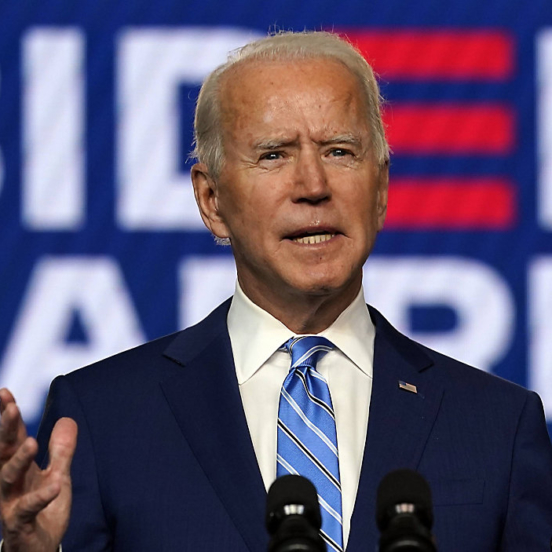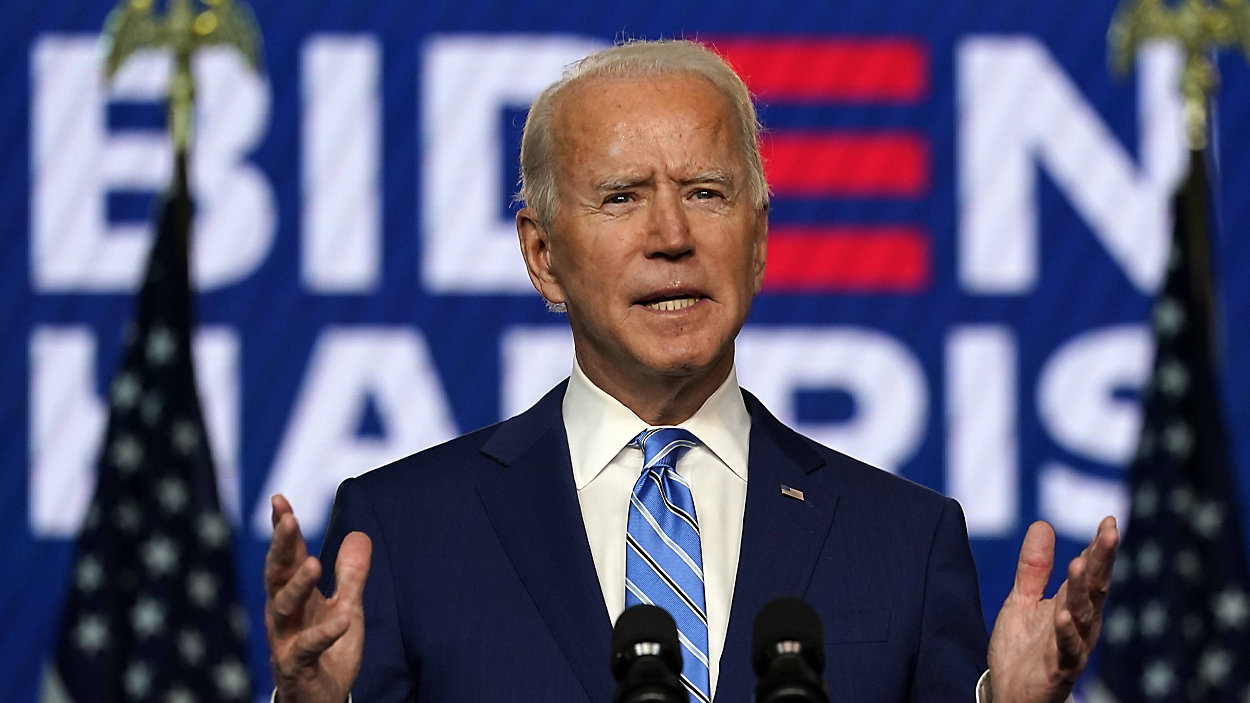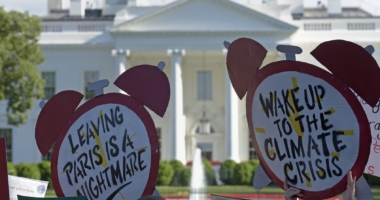Climate, Health and Equity Brief
Biden’s climate commitments, clean energy potential and voting for a brighter future
November 13, 2020

The Climate, Health & Equity Brief is GMMB’s take on the week’s news on the current impacts of climate change. If you haven’t subscribed yet, you can do so by clicking here.
Hot Topic: Moving forward. In the six days since being declared president-elect, Joe Biden set his climate plans into motion, naming several climate-minded officials to his transition team and committing to embed climate experts across all federal departments and agencies under his administration. The president-elect also discussed tackling climate change in diplomatic talks with leaders from Britain, France, Germany and Ireland, establishing it as both a national priority and an opportunity to show international leadership.
Despite this, his incoming administration faces an uphill battle for enacting sweeping climate legislation. Biden has committed to rejoining the Paris Agreement—which the U.S. formally exited on November 4—on his first day in office. However, even if the U.S. recommits to reducing emissions by 26 to 28 percent below 2005 levels by 2025 on January 20, the past four years of climate inaction under the Trump administration have left the U.S. far behind on its initial target.
Additionally, rejoining the Paris Agreement would require the U.S. to set national voluntary emissions reduction policies and goals, a feat that may prove impossible under a Republican-controlled Senate. Two Senate runoff elections in Georgia on January 5 will determine the majority party, with a Republican-run Senate possible if they secure just one seat.
Fortunately, Biden can pursue climate action regardless of Congressional support. His administration can undo virtually all Trump-era rollbacks on protections for the country’s air, waterways and land. He can elevate climate change as a priority by appointing agency officials with strong, science-based climate backgrounds. He can leverage existing Republican support to phase out the use of hydrofluorocarbons, planet-warming chemicals widely used in air conditioners and refrigerants. And, as called for by many environmental activists supporting the president-elect, Biden can create a new National Climate Council to support pro-climate decision-making across the federal government.
After four long years of environmental rollbacks and climate denial, last Tuesday’s election brought the country one step closer to turning the corner towards a brighter future for the planet and its people.
—Matt & Traci, GMMB
2020 Election
Calling his climate plan an ‘all-of-government’ agenda, president-elect Joe Biden has committed to embedding action on climate change across all departments and agencies of his impending administration. (The Washington Post)
Even as a Democratic Senate majority remains uncertain, president-elect Joe Biden can make climate action a priority within the U.S. government and the international community. (Grist, The Washington Post)
Days after being declared president-elect, Joe Biden has already begun diplomatic discussions with European and Canadian leaders on how to tackle climate change, establishing it as a top priority. (The Washington Post)
With the U.S. formally withdrawn from the Paris Agreement as of November 4, president-elect Joe Biden faces an uphill battle to enact emissions reductions policies that will recommit the nation to the global pact. (AP News, The Guardian)
Voters in California, Colorado, Michigan, New York, Ohio, Oregon and Texas approved ballot initiatives to secure a combined $2.2 billion in funding for restoring and developing public lands and safeguarding local wildlife. (The Nature Conservancy)
Nevada voters approved an amendment to their state constitution that will require electric utilities to generate at least 50 percent of energy from renewable sources by 2030. (Vox)
Voters in Denver approved a new sales tax that will fund green initiatives, including environmental justice programs and the development of renewable energy technologies. (The Denver Post)
Voters in East Brunswick, New Jersey and Columbus, Ohio approved ‘community choice’ energy programs that enable local governments, rather than utility companies, to determine sources of power and help increase consumer access to cheap renewable energy. (The Verge)
Voters in Berkeley rejected a proposed utility tax increase that would have funded a climate justice fund to address issues such as the disproportionate effects of heat on low-income and vulnerable residents. (Berkeleyside)
Health
A recent report warns that pandemics will become deadlier and more common in the future unless governments and communities end habitat destruction and protect the world’s tropical forests and other rich ecosystems. (Reuters)
A new study revealed that warming global temperatures are changing the behavior of hurricanes, pushing them further inland and causing them to last longer. (Grist)
Tropical Storm Theta became the 29th named storm to form in the Atlantic this season, making 2020 the most active hurricane season on record. (AccuWeather)
Equity
In his recently released environmental justice proposal, president-elect Joe Biden committed to imposing restrictions on chemical pollution that disproportionately impacts low-income and minority communities. (Bloomberg)
EPA staffers are pushing back against a recent executive order from the Trump administration banning diversity trainings, saying the move will further institutionalize racism and harm members of environmental justice communities. (HuffPost)
Politics & Economy
A recent report found that a U.S. transition to an almost entirely clean energy economy would cost just 0.4 percent of the country’s annual GDP and potentially create 2.5 million new jobs by 2050. (The Hill)
A new report found that almost 90 percent of global new electricity generation in 2020 will be from renewable sources while only 10 percent will come from gas and coal, putting renewables on track to become the world’s largest electricity source by 2025. (The Guardian)
A new report revealed that even in the absence of fossil fuels, limiting global temperature rise to 1.5°C this century will be extremely difficult without significantly reducing greenhouse gas emissions from food production. (The New York Times)
Kicker
Want to see how artists around the world are calling for climate action? Check out these six pieces of climate ‘artivism’.
“Let’s speak truth: climate change is real. We’re going to act on science fact, not science fiction.”
– Vice President-elect Kamala Harris






